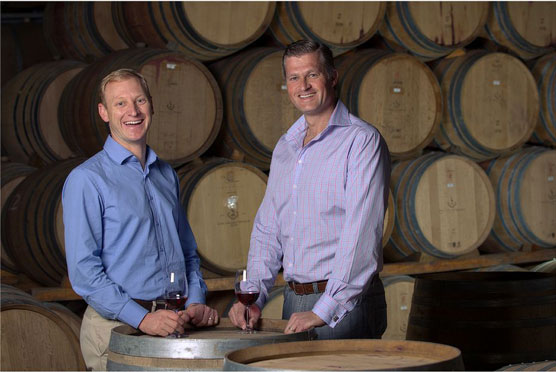Ambassador Stanislas Kamanzi is currently High Commissioner of the Republic of Rwanda to the Federal Republic of Nigeria. He served as a Cabinet Minister in the Government of the Republic of Rwanda since February 2006. He has held back to back portfolios of Infrastructure; Environment and Land; and Natural Resources till July 2014.
His University studies include a Master’s Degree in Environment and Development, from the University of Natal/South Africa; where he specialized in Geographical Information Systems and Water Resources Management, areas in which much of his research has been conducted. He shares some thoughts with ALM about Rwanda’s bilateral relationship with Nigeria, business opportunities and how it has been able to metamorphose into a growing economy after the 1994 genocide amongst other issues. Excerpt:
Your Excellency sir, you have been in Nigeria barely seven (7) months now. What is your perception about Nigerians and Nigeria?
Very positive. Nigerians are a hospitable people and any place you go, you really feel at home. The only problem is the weather which is totally different from the one we are used to in Rwanda. But by now I am quite well used to the constant heat, and I have had my first exposure to harmattan.
How would you describe the bilateral relationship between Rwanda and Nigeria?
Rwanda and Nigeria have had very excellent bilateral relationship at all levels. Our leaders have been continuously in sync on issues of global and continental scope from mutual interest perspectives. With particular regard to bonds between Rwanda and Nigeria, it has been five years now that both Countries have been operating residents of a High Commission in Abuja and Kigali. We are now in the process of establishing a framework to implement joint partnerships in a wide range of national sectors, on a permanent basis.
What investment opportunities abound in Rwanda and how long does it take a foreigner to register a business over there?
Rwanda is indeed a prime destination for investment. We offer numerous opportunities in that connection in the following sectors: Energy (Power Generation and Distribution), Housing, Manufacture, Financial Services, Communications, Mining, Agriculture, Tourism and Hospitality, etc. Government highly values the power of private investment from within and from abroad to accelerate development. Mechanisms to ease doing business in were set up in past years and Rwanda has been consistently counting among the best globally, in the World Bank Doing Business ranking. We rank among the top three in Africa. The Rwanda Development Board (RDB) was established as a One Stop Shop to mobilize and facilitate investment and to serve as permanent link between Government institutions and investors. It also facilitates potential synergies between foreign and local investors to maximize quick wins and efficiency.
An important competitive advantage to note as far as investing in Rwanda is concerned is the inclusion of the Country in the Wider East African market harbouring a population above 200 million. It takes 6 hours to register a business in Rwanda.
It is 22 years after the genocide; Rwanda is now a thriving nation and has made tremendous progress in the area of Human Development. Can you tell us how it was able to transform itself from a low-income agriculture based economy to a knowledge based service economy?
Let me clarify that very good progress has indeed been made in our aspiration to becoming a knowledge based service economy, but we still have some way to go to get where we want to be. But we are striving hard to make it a reality sooner than later.
The major factor to the good transformation happening now, is to be attributed to the vision of the Country’s leadership steered by H.E. President Paul Kagame who endeavoured to instil in the mind of the people of Rwanda, a number of revolutionary values and to empower them to take charge of the process to win the war over poverty, by way of an ingenious combination of universal standards of doing development and home efficient grown solutions Proper planning and accountable and participatory governance remain key ingredients in that process.
Rwanda’s Parliament unanimously approved a constitutional amendment for a referendum that permits President Paul Kagame to seek a third term. And December 18, 2015, the votes were in favour of a third term. Would this not be likened by many as going the way of some African leaders who have refused to relinquish power?
In the first place, there is no point venturing into that likening exercise. Each case should be assessed and comprehended within its own context. Comparisons can only mislead. If any, apples should be comparable to apples and oranges to oranges. As Rwandans we believe in the sovereignty of peoples exercising democracy in their own context, including in deciding on the leadership they believe is good for them. As long as the people are central to such decisions, as was the case in Rwanda, none else should obstruct. And Rwanda is not unique in this regard in due regard to other examples including in the western world. In case they are not part of process, then they would have legitimacy to put forward their aspirations against. For Rwanda, we are certainly not insensitive to those fears you highlighted, but we ask our partners and friends to be supportive of the will of our people and of our continued effort to consolidate the good wins the Country has made thus far, against all odds.
In view of our efforts to fight corruption spearheaded by President Mohammed Buhari, is there something the Nigerian Government can learn from Rwanda?
Rwanda can only applaud and express unreserved support to the move of the Government of Nigeria under the leadership of H.E. Mohamed Buhari to combat corruption and to institutionalize a culture of people-centred governance. In Rwanda we have certainly garnered benefits from enforcing a zero tolerance policy against corruption. Corruption is a development killer, and it has to be killed for development to take off.
Given your antecedents as Rwandan Former Minister of Infrastructure, Natural Resources, and Environment and Lands respectively, do you think wildlife tourism can boost Nigeria’s economy?
Being quite new in Nigeria, I have limited knowledge of the potential of the country regarding wildlife tourism. But let me just assume that it is existent and high. Against that assumption, its contribution to boosting the national economy can only be real. Taking the example of the Rwanda wildlife tourism, centred on our National Parks, including the Volcano National Park which is the habitat to the mighty Mountain Gorillas, its contribution to the national economy has been growing exponentially in terms of revenues in foreign currency (ranking among the two main contributors to the GDP) and in terms of collateral benefits including job creation and maintenance of a safe and clean environment whose value is seldom accounted for.
Do you have the statistics of Nigerians who live in Rwanda and Rwandans who live in Nigeria?
No precise statistics but they amount to just hundreds on both sides.
Can you please tell us about your visa procedures for Nigerians who want to visit Rwanda?
Nigerians and all Africans indeed, can obtain their visa at any entry port, on arrival in Rwanda. Information in this regard can be obtained on the following websites:
www.nigeria.embassy.gov.rw
www.migration.gov.rw
The Rwanda High Commission also issues visas for those who would prefer to depart from Nigeria, visa in passport. Applications can be made online.
It is in public domain that the choice of Rwanda for the 26th World Economic Forum on Africa in Rwanda scheduled for May this year is because it is arguably the emerging regional high-tech hub and boasts one of sub-Saharan Africa’s fastest GDP growth rates. What are your expectations?
Rwanda’s expectations are along good and high profile attendance, which will permit a 360o consideration of Development opportunities with particular focus on Africa, as to how the continent can tap to the fullest its potential for the current positive trends in economic growth to gain momentum and be sustainable based on integrated African markets. We trust that Africa will turn up and Rwanda is poised for the rendezvous.
Do you have some programmes and or initiatives that your Government runs through your High Commission that Nigerians can tap into?
As High Commission we run no specific programmes or initiatives other than interrelating with institutions of the Host Country. However the Rwanda High Commission is the primary gateway to Rwanda for Nigerians interested in doing business in Rwanda, or in Nigeria with Rwandans, and elsewhere. One of our tasks is actually to provide a framework for such partnerships to start off, through offering necessary linkages and facilitation. Good proposals and initiatives will receive appropriate attention at the High Commission.
Interview by Victor Gotevbe



